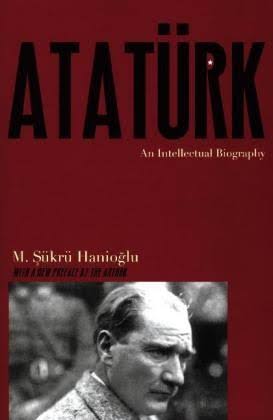
If popular expactations were any guide, two paths to global leadership lay wide open to Mustafa Kemal in 1922: he could either capitalize on Ottoman posession of the caliphate in order to seize the mantle of pan- Islamic leadership, or he could set himself up as an anti-imperialist model for Asian and African socialists. But it was at this juncture that Mustafa Kemals Turkist, scientistic, and pro-Western leanings became manifest, leading him and the Turkish nation down an uncharted path that combined intense nationalism with an extreme commitment to Western secularism.
The popular philosophy of scientism, serving as a deus ex machina, provided the overall framework of this new secularism and shaped Mustafa Kemals views of Islam. In addition, he combined insights from German vulgar materalism with those of positivism, reading carefully such works as Leone Caetanis Annali dellIslam in Turkish renditions. He seems to have fully agreed with the Italian orientalist that revelation was a myth fabricated by Muslim tradition; that the Quran represented Muhammads own composition; that the Prophet adopted many practices from Judaism; and that the driving force behind Islamic expansion was not religious zeal but the rapacity of the Arab tribesmen. As president of the Republic, he went so far as to make cautious use of Caetanis words when drafting a chapter on the origins of Islam for the official high school history textbook.




